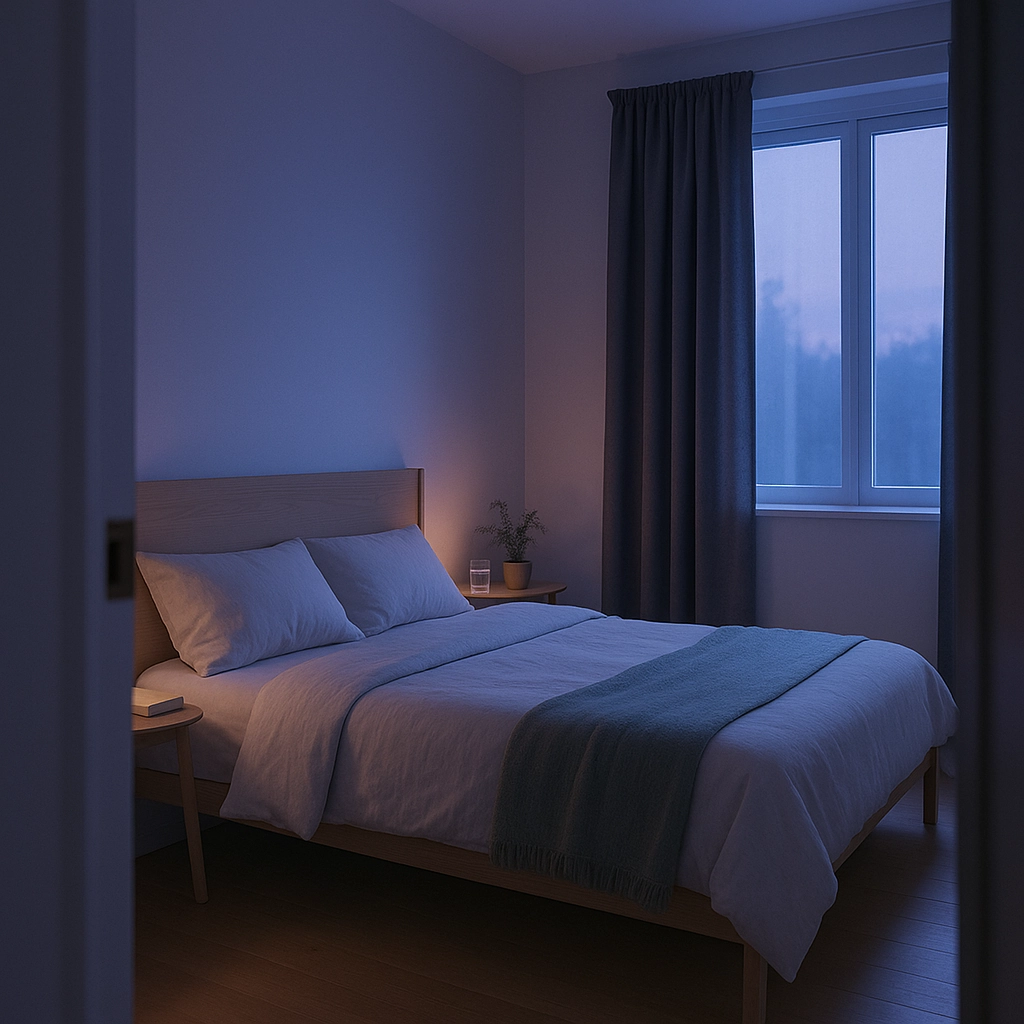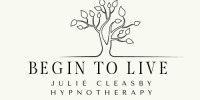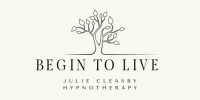The Modern Mental Health Trifecta
Let's be honest—modern life isn't exactly designed for mental wellbeing. Between constant digital connection, work pressures, and global uncertainties, our brains and bodies are dealing with more stimulation than ever before. The result? A perfect storm where stress levels soar, sleep quality plummets, and self-care becomes something we postpone rather than prioritise.
But here's the thing: these three elements—stress, sleep, and self-care—aren't separate issues. They're deeply interconnected parts of your mental health ecosystem. When one area struggles, the others inevitably follow suit. The good news? This connection works in reverse too. Improvements in one area create positive ripple effects throughout your entire wellbeing.
As a hypnotherapist and EFT practitioner, I've witnessed firsthand how holistic approaches can transform these challenges into opportunities for genuine healing. Let's explore practical, science-backed strategies that address all three elements of this crucial mental health triangle.
Understanding the Stress Cycle
Stress isn't inherently bad—it's your body's natural response to demands or threats. The problem occurs when we never complete the stress cycle, leaving stress hormones circulating in our system long after the triggering event has passed.

Recognising Your Stress Signals
Before you can manage stress effectively, you need to recognise how it manifests in your unique system:
- Physical signs: Tension headaches, digestive issues, shallow breathing, muscle tightness
- Mental signs: Racing thoughts, difficulty concentrating, negative thought patterns
- Emotional signs: Irritability, mood swings, feeling overwhelmed
- Behavioural signs: Sleep disturbances, changes in appetite, procrastination
When you notice these signals appearing, it's your cue that your stress response needs attention—not tomorrow or next week, but ideally within the next few hours.
Stress-Release Techniques That Actually Work
1. EFT Tapping for Immediate Relief
Emotional Freedom Techniques (EFT) or "tapping" combines elements of cognitive therapy with acupressure. By tapping on specific meridian points while acknowledging challenging emotions, you can rapidly reduce cortisol levels and restore emotional balance.
Try this simple sequence when stress hits:
- Take a deep breath and rate your stress level from 0-10
- Tap the side of your hand while saying: "Even though I feel this stress, I completely accept myself"
- Continue tapping through points on your face and upper body for 2-3 minutes
- Rate your stress again—most people experience a significant reduction
For a detailed guide on EFT for stress relief, visit our dedicated page.
2. The 5-5-5 Breath Reset
When stress activates your sympathetic nervous system (fight-or-flight), this breathing pattern can quickly restore balance:
- Inhale for 5 seconds
- Hold for 5 seconds
- Exhale for 5 seconds
- Repeat 5 times
The extended exhale is particularly effective for activating the parasympathetic nervous system, your body's natural calming mechanism.
3. Physical Stress Release
Stress stores itself in your body—and sometimes the most effective release is physical. Options include:
- A brisk 10-minute walk
- 30 seconds of jumping or dancing
- Progressive muscle relaxation (tensing and releasing muscle groups)
- Gentle stretching focusing on shoulders, jaw, and hips where tension accumulates
Sleep: The Non-Negotiable Reset Button
Sleep isn't a luxury—it's when your brain processes emotions, consolidates memories, and your body repairs itself. Yet approximately 36% of UK adults struggle with sleep issues regularly, with modern life often the primary culprit.
Why Sleep Quality Matters More Than Quantity
While the recommended 7-9 hours is important, the quality of your sleep makes an enormous difference to mental health outcomes. Poor quality sleep:
- Increases anxiety sensitivity by up to 30%
- Impairs emotional regulation
- Reduces cognitive function and problem-solving abilities
- Disrupts hormonal balance
Creating Your Sleep Sanctuary

1. Environmental Optimisation
Your bedroom environment directly impacts sleep quality:
- Temperature: Keep your room slightly cool (16-18°C)
- Light: Eliminate blue light 1-2 hours before bed and use blackout curtains
- Sound: Consider white noise or ear plugs if needed
- Comfort: Invest in a supportive mattress and pillows that work for your body
2. Digital Boundaries
The devices keeping you connected are also keeping you awake:
- Create a "tech curfew" 60 minutes before bedtime
- Charge phones outside the bedroom
- Use night mode settings on essential devices
- Replace pre-sleep scrolling with reading, gentle stretching, or meditation
3. Hypnotic Techniques for Sleep
Self-hypnosis techniques can powerfully prepare your mind for restful sleep:
- Body scan relaxation: Starting from your toes, mentally relax each part of your body
- Visualisation: Imagine a peaceful place where you feel completely safe
- Counting down: Visualise descending stairs or a lift, counting from 10 to 1, feeling increasingly relaxed
Self-Care: Beyond Bubble Baths
Self-care has become somewhat trivialised, often reduced to occasional indulgences. True self-care is about consistent practices that honour your fundamental needs as a human being.
The Self-Care Foundation Trilogy
1. Nourishment
What you eat directly impacts your stress resilience and sleep quality:
- Prioritise complex carbohydrates (whole grains, vegetables) that support steady serotonin production
- Include omega-3 fatty acids (oily fish, flaxseeds, walnuts) which help regulate stress hormones
- Stay hydrated—even mild dehydration increases cortisol levels
- Minimise caffeine after midday and alcohol in the evening, both of which disrupt sleep architecture
2. Movement
Exercise isn't just for physical health—it's one of our most powerful mental health tools:
- Aim for 20-30 minutes of movement daily
- Include both vigorous activity and gentle movement like yoga or tai chi
- Outdoor exercise provides additional benefits through nature exposure
- Remember that any movement is better than none—even 5 minutes matters
3. Connection
Humans are social creatures, and meaningful connection is essential to wellbeing:
- Schedule regular contact with supportive people
- Consider group activities that combine social connection with other self-care elements
- Be mindful of digital connections—prioritise quality interactions over quantity
- Include connection with self through reflective practices
Micro Self-Care for Busy Lives
Don't have hours for self-care? These micro-practices take under 5 minutes:
- Three conscious breaths while waiting for the kettle to boil
- 60-second shoulder and neck stretches between meetings
- Savour one mindful bite of food at each meal
- 2-minute gratitude reflection before sleep

Creating Your Holistic Mental Health Plan
The most effective approach combines elements from each area into a personalised strategy:
Step 1: Assess Your Current State
Take an honest inventory of your current stress levels, sleep quality, and self-care practices. Note where you're struggling most—this is likely your best starting point for intervention.
Step 2: Choose One Practice from Each Category
Select one technique from each area to implement consistently:
- A stress-management technique
- A sleep-supporting practice
- A self-care fundamental
Start small—consistency matters more than intensity.
Step 3: Track Your Results
Notice how changes in one area affect the others. Does better stress management improve your sleep? Does prioritising movement reduce your stress response? These connections help reinforce your commitment to the practices.
Step 4: Adjust as Needed
What works during one phase of life might not work in another. Remain flexible and willing to experiment with different combinations of practices.
When to Seek Professional Support
While self-help strategies are valuable, sometimes professional support provides necessary structure and guidance. Consider reaching out if:
- Stress feels unmanageable despite your best efforts
- Sleep problems persist for more than two weeks
- You experience symptoms of depression or anxiety
- Self-care feels impossible rather than just challenging
Therapies like hypnotherapy and EFT can provide powerful tools for addressing deeper patterns contributing to stress, sleep, and self-care challenges. These approaches work directly with your subconscious mind, where many of our automatic responses originate.
The Integrated Approach
The most important takeaway? Stop treating stress, sleep, and self-care as separate concerns. They form a dynamic system where each element influences the others. By addressing all three with consistent, manageable practices, you create a foundation for resilience that can weather modern life's inevitable challenges.
Remember that wellbeing isn't about perfection—it's about creating sustainable practices that support you through life's ups and downs. Small, consistent steps create profound changes over time.
Ready to explore how hypnotherapy and EFT can support your mental health? Get in touch to learn more about our holistic approach to stress management, sleep improvement, and authentic self-care.



